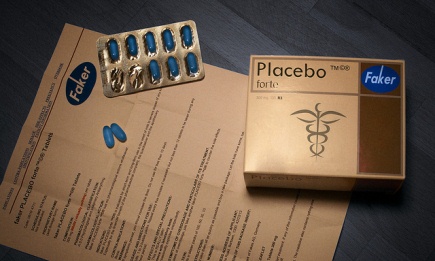Dopamine, the key to placebo-success

Your response to dummy medicine may depend on your genes, Harvard’s Kathryn Hall and others claim in a recent article on the Open Access repository PLoS One. People with a gene variant that codes for higher levels of the brain chemical dopamine respond better to placebos than those with the low-dopamine version.
A responder or a non-responder
These findings can help researchers design medical studies that distinguish the placebo response from the underlying effect of a medicine, the real aim of drug trials. “This is a possible way to discern who is going to be a placebo responder or non-responder in a clinical trial,” said study co-author Kathryn Hall of Harvard Medical School.
People report feeling better after receiving a placebo, such as a sugar pill or fake treatment, for conditions ranging from chronic pain to Parkinson’s disease. But for unknown reasons, only some patients respond strongly, and there’s no way to predict who will improve on a placebo.
High dopamine, more acute pain
A few studies have provided clues. Differences in versions of the catechol-O-methyltransferase (COMT) gene, which determines levels of dopamine in the brain’s prefrontal cortex, are linked to differences in reward-seeking and pain perception. People with the high-dopamine version of the COMT-gene feel pain more acutely and seek rewards more strongly than those who have the low-dopamine copy. That led the researchers to wonder whether the gene modulates placebo response.
To find out, Hall and her colleagues analysed DNA from 104 patients with irritable bowel syndrome who were randomized to one of three groups: one group was told they were on the waiting list for treatment, another received a placebo in the form of seemingly real, curt acupuncture, and the third group received fake acupuncture from a caring, warm practitioner who looked patients in the eye, asked about their progress, and even touched them lightly.
Grouping people according to genes
Patients with the high-dopamine version of the gene felt slightly better after seeing the curt, all-business health-care provider that gave placebo acupuncture. But they were six times as likely to say their symptoms improved with a caring practitioner as those with the low-dopamine gene, who didn’t improve much in any group.
The findings suggest that medical studies called clinical trials could identify treatment versus placebo effect by grouping patients by gene variant, Hall thinks. Knowing up front the level of placebo effect for a clinical trial could reduce the cost of the trial significantly by using fewer participants, for instance.
Meest Gelezen
Vrouwen houden universiteit draaiende, maar krijgen daarvoor geen waardering
Hbo-docent wil wel rolmodel zijn, maar niet eigen moreel kompas opdringen
‘Sluijsmans et al. slaan de plank volledig mis’
Wederom intimidatie van journalisten door universiteit, nu in Delft
‘Free riding brengt het hoger onderwijs in de problemen’

